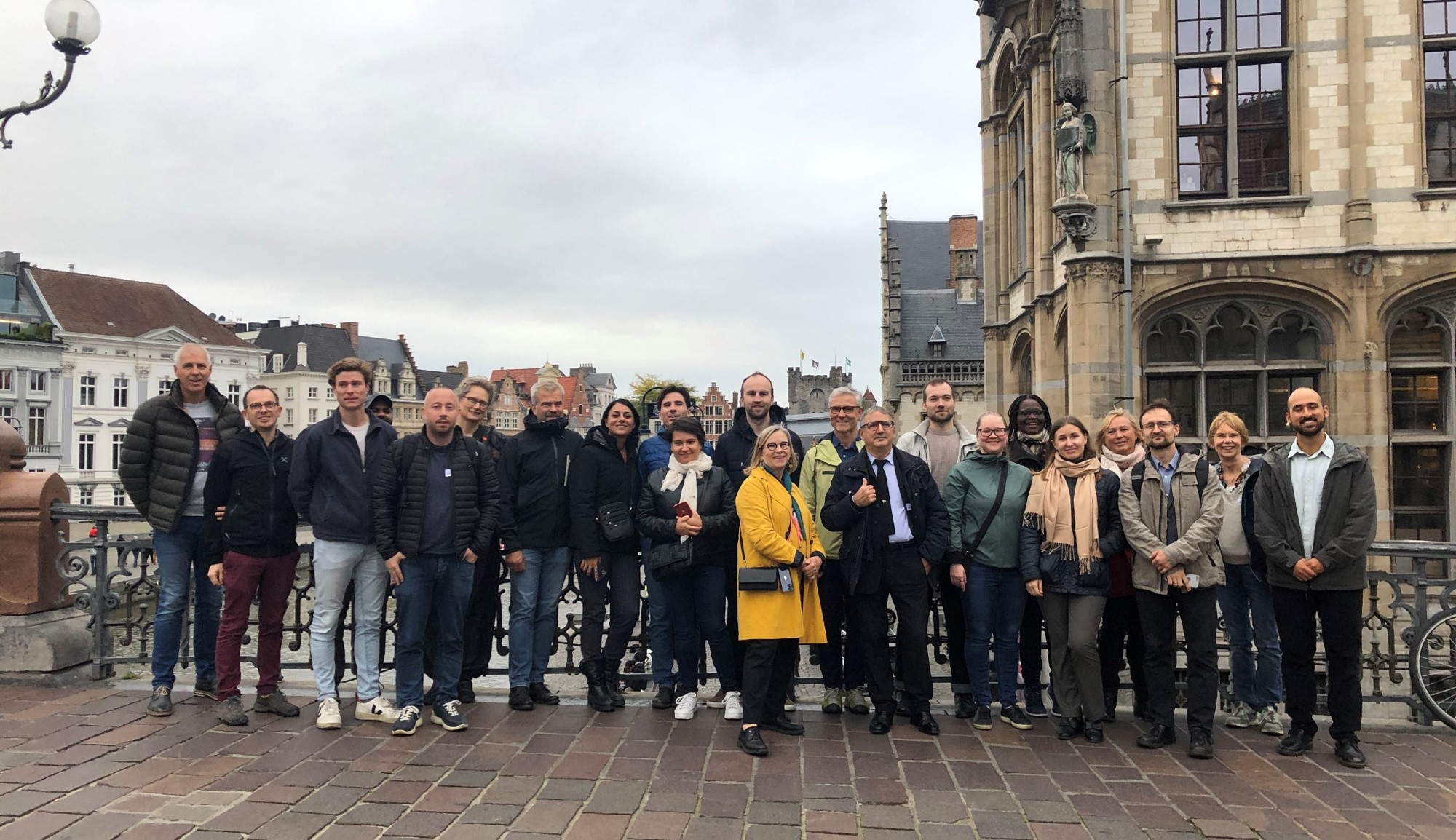The first trans-European advanced course on science-based policy advice in agriculture and environment was held in October 2022 at VAC in Ghent, Belgium. More than 30 researchers, advisors and administrators from 10 European countries, all working with science-based policy advice participated. And what a success it was!
Trans-European collaboration
The course was planned in a cross-boundary collaboration between
- CREA – Council for Agricultural Research and Economics – Italy
- DCA - Danish Centre for Food and Agriculture & DCE – Danish Centre for Environment and Energy, Aarhus University – Denmark
- ILVO - Flanders Research Institute for Agriculture, Fisheries and Food – Belgium
- INRAE – French National Research Institute for Agriculture, Food, and Environment – France
- LUKE – Natural Resources Institute – Finland
- University Of Zielona Góra – Poland
- WUR – Wageningen University & Research – The Netherlands
All seven institutions have a long history with science-based policy advise and could contribute with different experiences in relation to the organisational setup for policy support, stakeholder interaction etc.
New network on science-based advice: The Ghent Group
The institutions and people involved in the planning has now formed an informal network, with the aim of planning future meetings, courses, and workshops and to continue the dialogue and exchange of experience. The network is named the Ghent Group after the first successful event. It is open for everyone to follow the activities and sign up for news on future events. You can find more information at the website: www.ghentgroup.org
The training course: Successful workshop in four acts
On the morning of October 5th 2022, experienced advisors were setting the scene under the heading “What is science-based advice, and how is it used?”. WUR, EC-JRC and ILVO together with CREA and INRAE shared insight in both the theoretical framework, European methods, and practical experience in science based advice.
After lunch, AU, ILVO, INRAE and WUR gave examples of problems and best practices with delivering scientific advice under the heading, “What are the pitfalls and how do we overcome them”.
The first day was completed with a highly appreciated social evening event/culinary tour in the old town of Ghent, arranged by ILVO.
On the second day, focus was on advice in an international context and stakeholder relations, with contributions from INRAE, CREA, EKLIPSE, ILVO and AU.
During the whole course, the program included time for reflection, input and exchange of experiences – and the participants embraced this opportunity. Many very engaging discussions were taken throughout the two days, providing a well-grounded basis for further discussions in the Ghent Group after the course has ended.
The evaluation of the two days of science-based advice reflected the energetic engagement in the discussions and in the course as a whole: On a scale of 1-5, participants scored 4.8 on for their satisfaction with the overall.
The program is found here: https://projects.au.dk/ghentgroup/contact/previous-events/training-course-2022
Background for the collaborative training course: Rising demand for scientific advice in order to solve complex issues
The European Union as well as national governments have adopted ambitious climate and environmental targets for agriculture and food production. At the same time, an efficient and competitive agricultural and food sector is important for food supply and the economy. Decisions and regulations in this field can be both complicated and conflicting. The topics of agriculture, food, climate and the environment are therefore high on the political agenda, and there is a growing demand for scientific knowledge advising policy formulation.
Complexity drives growing demand for training and knowledge sharing
Aarhus University has a long experience in providing science-based policy advice to Danish ministries. The university hosted the first European Seminar on science-based government advice in agriculture, food, climate and the environment in March 2021 (more info here: https://conferences.au.dk/science-based-policy-advice-in-agriculture/). More than 200 researchers and advisers from all over Europe participated. One of the conclusions was, that there is a need to learn from each other, to share best practices and to discuss the main principles, in order to strengthen the evidence based policy development in Europe. As a result, the seven abovementioned European research institutes developed the training course, open to experienced resarchers and advisors from all of Europe.
Agricultural and environmental policy subject to heated debates
In several member states, science-based advice has become the subject of heated debates. Stakeholders and lobbyists are strong and some has challenged both the policy as well as the science behind it. This provides a new type of pressure on the researchers delivering the advice. The pressure from stakeholders and the strong political agenda has to be kept at bay, and at the same time the scientific results has to be both solid and transparent. This is not an easy task for single researchers, and strong institutional setups has been developed at some of the major European research institutes involved. Sharing experience on institutional setups was an important part of the training course as well as it will be of the Ghent Group network.
Share this page


Login (or register) to follow this conversation, and get a Public Profile to add a comment (see Help).
08 Dec 2022